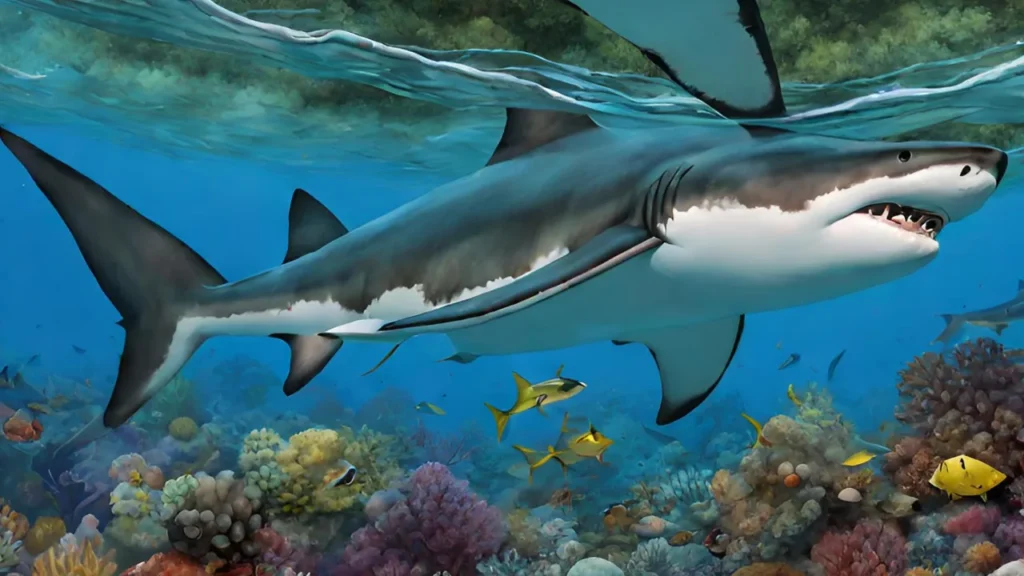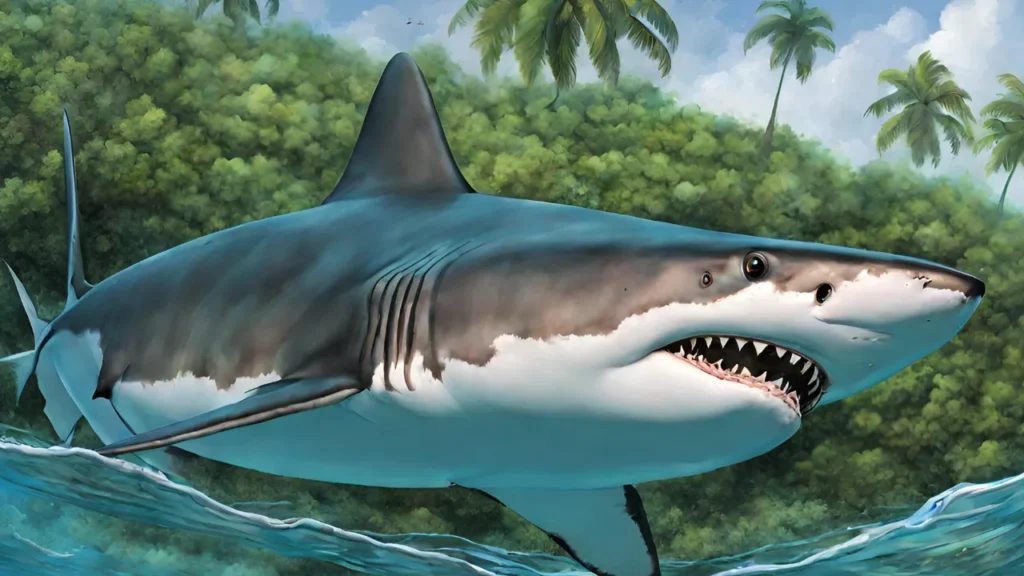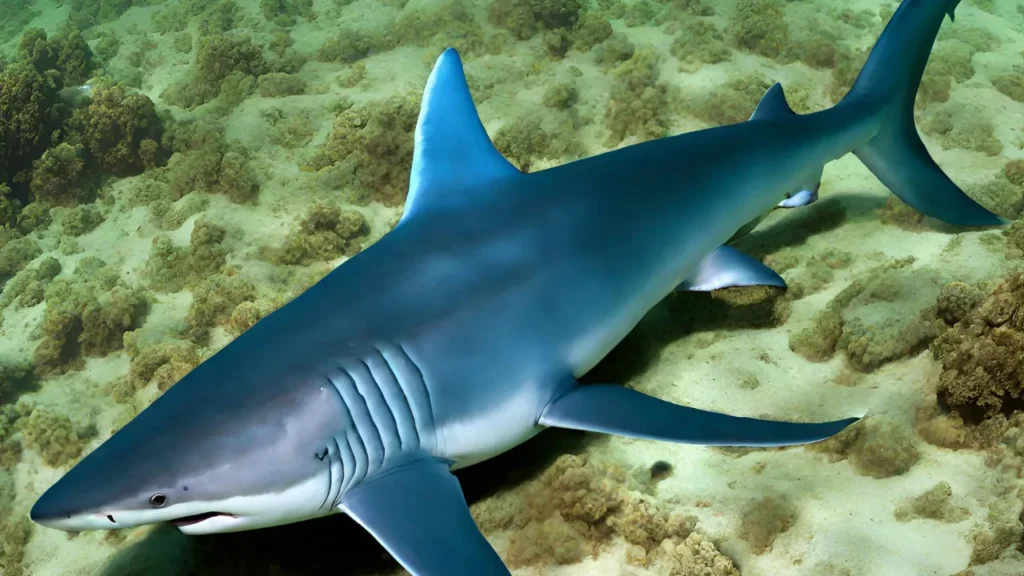Trinidad and Tobago, nestled in the southern Caribbean Sea, boasts a rich marine environment teeming with life, including an array of shark species. From the vibrant coral reefs to the open ocean expanses, these islands offer diverse habitats that support a wide variety of sharks, each playing a vital role in the delicate balance of the marine ecosystem.

Introduction to Trinidad and Tobago’s Marine Environment
Trinidad and Tobago comprise two main islands and several smaller islets, surrounded by warm, nutrient-rich waters of the Caribbean Sea. The islands are known for their stunning coral reefs, mangrove forests, and expansive seagrass beds, which serve as crucial habitats for numerous marine species, including sharks.
Shark Species Diversity
Reef Sharks
Among the most commonly encountered shark species in Trinidad and Tobago are reef sharks, including the Caribbean reef shark (Carcharhinus perezi). These sleek predators patrol the coral reefs, preying on a variety of fish and crustaceans. Their presence indicates the health of the reef ecosystem, making them valuable indicators of reef vitality.
Nurse Sharks
Nurse sharks (Ginglymostoma cirratum) are another prominent shark species found in the coastal waters of Trinidad and Tobago. These bottom-dwelling sharks are often seen resting on the sandy seafloor or hidden within coral crevices. Despite their formidable appearance, nurse sharks are generally harmless to humans, preferring to feed on small fish and invertebrates.

Pelagic Sharks
Trinidad and Tobago’s waters also attract pelagic shark species, such as tiger sharks (Galeocerdo cuvier), bull sharks (Carcharhinus leucas), and hammerhead sharks (Sphyrna spp.). These larger predators roam the open ocean, venturing closer to shore in search of prey. While encounters with these sharks are less common, they contribute to the overall biodiversity of the region’s marine environment.
Ecological Role of Sharks
Sharks play a crucial role in maintaining the health and balance of Trinidad and Tobago’s marine ecosystem. As apex predators, they help regulate the populations of prey species, preventing cascading effects throughout the food web. By controlling the abundance of herbivorous and mesopredatory fish, sharks indirectly support the resilience of coral reefs and other marine habitats.
Cultural Significance
Sharks hold significant cultural importance in Trinidad and Tobago, deeply rooted in the traditions and beliefs of the islands’ inhabitants. In Tobago, for example, the annual Great Fete Weekend includes a shark-themed event known as “Shark Night,” celebrating the island’s connection to these majestic creatures. Additionally, sharks feature prominently in indigenous folklore and mythology, symbolizing strength, resilience, and the mysteries of the ocean.
Threats to Shark Populations
Despite their ecological and cultural importance, sharks in Trinidad and Tobago face numerous threats that jeopardize their survival. Overfishing, driven by the demand for shark fins and meat, poses a significant threat to many shark species worldwide, including those found in the waters of Trinidad and Tobago. Additionally, habitat degradation, pollution, and climate change further exacerbate the challenges facing shark populations.

Conservation Efforts
To address the decline of shark populations, conservation efforts are underway in Trinidad and Tobago and across the wider Caribbean region. These initiatives focus on various aspects of shark conservation, including:
- Legislative Protections: Governments have implemented regulations to limit shark fishing and protect critical habitats, such as marine protected areas and shark sanctuaries.
- Community Engagement: Local communities, fishermen, and conservation organizations collaborate to raise awareness about the importance of sharks and promote sustainable fishing practices.
- Research and Monitoring: Scientists conduct research to better understand shark behavior, population dynamics, and habitat requirements, providing valuable data to inform conservation strategies.
- International Collaboration: Trinidad and Tobago participate in regional and international initiatives aimed at conserving sharks, such as the Caribbean Challenge Initiative and the Convention on International Trade in Endangered Species (CITES).
Future Directions
While progress has been made in shark conservation efforts, continued vigilance and action are necessary to ensure the long-term survival of Trinidad and Tobago’s shark populations. Strengthening enforcement of existing regulations, expanding marine protected areas, and fostering sustainable fishing practices are essential steps toward safeguarding these iconic marine predators for future generations.
Shark Tourism
Shark tourism presents an opportunity for sustainable economic development while promoting conservation efforts. Trinidad and Tobago’s clear waters and diverse shark species offer ideal conditions for responsible shark diving and ecotourism initiatives. By providing alternative livelihoods for local communities and fostering appreciation for sharks, shark tourism can contribute to conservation efforts while generating revenue for the region.

Shark Research and Education
Investing in shark research and education programs is essential for advancing our understanding of these apex predators and fostering conservation-minded attitudes among the public. Research initiatives focused on shark behavior, migration patterns, and population dynamics provide valuable insights that inform conservation strategies. Additionally, educational outreach programs raise awareness about the importance of sharks in marine ecosystems and promote responsible stewardship of the oceans.
Climate Change Impacts
Climate change poses significant threats to shark populations in Trinidad and Tobago and worldwide. Rising sea temperatures, ocean acidification, and extreme weather events can disrupt marine habitats, alter prey availability, and impact shark reproduction and migration patterns. Addressing the root causes of climate change and implementing adaptation strategies are crucial for mitigating its effects on sharks and their ecosystems.
Traditional Shark Fishing Practices
In addition to commercial fishing pressure, traditional shark fishing practices can also impact shark populations in Trinidad and Tobago. Indigenous fishing methods, such as gillnetting and longlining, can inadvertently catch sharks as bycatch, contributing to population declines. Collaborating with local fishers to develop sustainable fishing practices that minimize bycatch and promote selective harvesting can help alleviate pressure on shark populations while supporting traditional livelihoods.

International Collaboration and Policy Advocacy
Effective shark conservation requires international collaboration and policy advocacy to address transboundary challenges and promote sustainable management of shared shark populations. Trinidad and Tobago, as a member of regional and international fisheries management organizations, can play a crucial role in advocating for science-based conservation measures, such as catch limits, gear restrictions, and the establishment of shark sanctuaries, to ensure the long-term viability of shark populations in the Caribbean and beyond.
Conclusion
Sharks play a vital role in the marine ecosystems of Trinidad and Tobago, contributing to biodiversity, ecological balance, and cultural heritage. By understanding the diversity, ecology, and conservation needs of sharks, we can work together to protect these magnificent creatures and preserve the health of our oceans for generations to come.

Pingback: Who Is Mike Myers: A Journey Through Comedy, Creativity, and Cultural Impact - LogicFact365